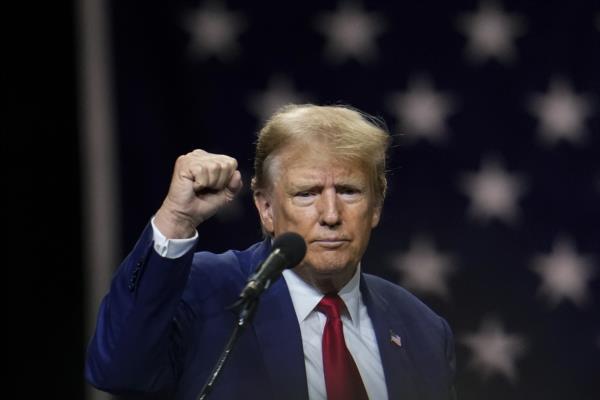
Oregon Supreme Court Declines to Remove Trump from 2024 Ballot, Citing Lack of Authority
In the latest development concerning efforts to exclude Donald Trump from the 2024 ballot, the Oregon Supreme Court has declined to hear a case seeking the removal of the former president from the upcoming election. The court cited a lack of authority to handle the issue at the primary stage.
This decision comes after the Colorado Supreme Court ruled that Trump could be removed from the ballot, a decision that is now being taken to the US Supreme Court. The timeline for this matter is time-sensitive, with the US Supreme Court scheduled to hear the Colorado case on February 8th.
The crux of the issue revolves around Section 3 of the 14th Amendment, which prohibits individuals who engage in rebellion or insurrection against the Constitution from holding office. Last month, Colorado ruled that Trump's role in the January 6th attacks on the Capitol disqualifies him from the presidency. Notably, the US Supreme Court has never ruled on Section 3.
The question at hand is whether the Supreme Court should rule on the Colorado case. Support for such a ruling stems from concerns over the absence of due process in accusing the former president of rebellion and insurrection. The argument is that it is vital for Trump to have his day in court before making such serious accusations.
Interestingly, the legal processes against Trump thus far have not had a significant impact on his polling numbers. Therefore, some argue that it is ultimately up to the American people to decide whether or not Trump is fit for office, instead of resorting to unprecedented actions in court.
Support for Trump in the ballot battle is widespread, with 27 state attorney generals throwing their weight behind him. They predict chaos if he is removed from the ballot, warning of confusion and a disruption of the democratic process. The concern is that decisions to exclude Trump from ballots will be made after the ballots have already been issued, causing further confusion and undermining the principles of democracy.
As the debate unfolds, it becomes clear that the question of whether Trump should remain on the ballot will carry profound implications for the upcoming election. The decision rests on the shoulders of the US Supreme Court, which, given the time constraints, must act swiftly to address the matter.
Ultimately, the outcome of this case will not only impact Trump's future political plans but will also shape the future interpretation and application of Section 3 of the 14th Amendment. Until then, the nation eagerly awaits the Supreme Court's ruling on the Colorado case and the subsequent consequences it may bring.







